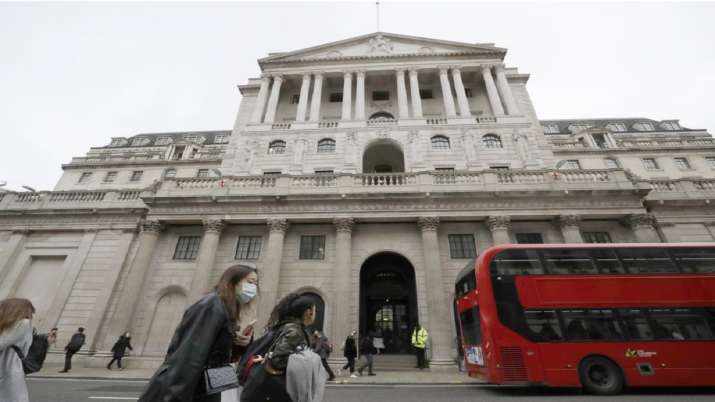
The Bank of England’s action took its key rate down to 1.25 percent and marked five consecutive hikes that began in December.
Highlight
- The Bank of England raised interest rates by a quarter percent on Thursday
- War in Ukraine boosts food and energy prices as fighting disrupts shipments
- The Bank of England is now behind the US Federal Reserve in the fight against inflation around the world
The Bank of England raised interest rates by a quarter percentage point on Thursday, easing pressure on a bold move to deal with a rise in prices that pushed inflation to a 40-year high.
While the central bank of the United Kingdom began raising interest rates earlier than its counterparts, the Bank of England is now behind the US Federal Reserve in the worldwide fight against inflation due to rising food and energy prices.
The Bank of England’s action took its key rate down to 1.25 percent and marked five consecutive hikes that began in December. The vote was 6–3, with the dissidents supporting a half-point increase.
The Fed, for its part, went bold on Wednesday, raising its benchmark rate by three-quarters of a percent, raising it to a range of 1.5 percent to 1.75 percent.
Michael Hewson, Chief Market Analyst at CMC Markets UK, said: “It is quickly becoming clear that more radical action is needed for the Bank of England to establish a sense of stability, as tinkering around the edges will not cut it.” Used to be.” A note to customers.
The war in Ukraine has boosted food and energy prices as the fighting disrupts shipments of oil, natural gas, grain and cooking oil. This is adding to the price rise that began last year as the global economy began to recover from the COVID-19 pandemic.
The Bank of England also raised its forecast for inflation to reach more than 11 percent in October, the highest since 1982, after reaching 9 percent in April. The inflation target of the bank is 2 percent.
“The increase in October reflects higher projected domestic energy prices following a potential additional large increase in the offgame price range,” the bank said in a statement. Policymakers at the Bank of England are cautious about raising interest rates too quickly, arguing that the inflationary pressures facing many of the British economy are external and beyond the control of the Bank.
But price increases are now becoming embedded in the economy, fueling demand for higher wages and slowing economic growth as consumers and businesses reduce purchases. Data released this week by the Office for National Statistics showed economic output held steady in February and shrank by 0.1 per cent in March, raising concerns that Britain could be heading into recession.
The World Bank last week downgraded its outlook for the global economy and raised concerns about a return to “stagflation” – a combination of high inflation and slow growth last seen in the 1980s.
Federal Reserve Chairman Jerome Powell, speaking to reporters on Wednesday, acknowledged the challenges facing monetary policymakers.
“It’s an extraordinarily unusual time, and we really don’t have a blueprint or any experience of a situation like this,” he said. “And so, I think we should be humble about our ability to understand the data. … We need to see more data. We need to be a little patient.”
Read also: US Fed Reserve hikes interest rates by 75 bps to tame inflation; Biggest increase since 1994
Read also: Will the Federal Reserve take big rate hikes to fight inflation? verdict today